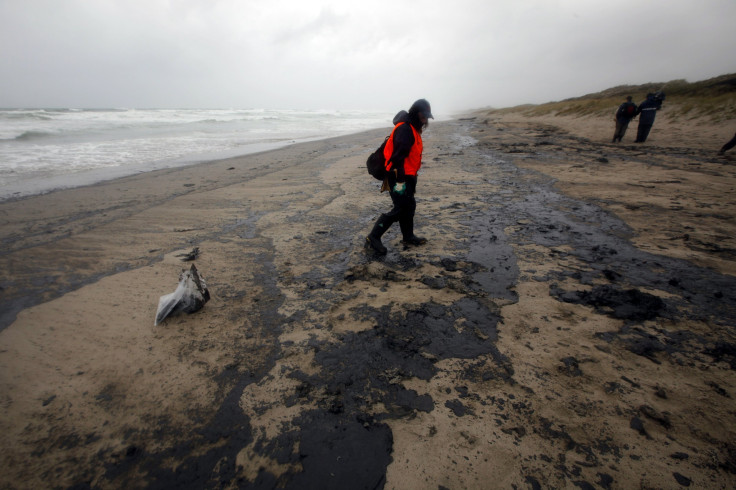Environmentalists Muzzled By New Zealand As It Will Allow Offshore Drilling Without Public Comment

Oil and gas companies may carry out exploratory deep-sea drilling in New Zealand’s waters with approval from the Environmental Protection Authority, effective Friday, but without approval from the public.
The new law is an increase in drilling regulations from a previous law that only required the prime minister’s signature, but its exclusion of public say is drawing criticism from environmental groups.
The New Zealand government should prohibit exploratory deep-sea drilling, but if they allow it, the public should at least have a say on each proposal, New Zealand’s progressive Green Party said in a statement Thursday.
"The government has bent over backwards for the oil industry, doing everything they can to make it easier to operate in New Zealand, including $46 million in tax breaks in the last year and $25 million in seismic surveys,” Gareth Hughes, an energy spokesperson for the Green Party, said. “And here they are directly limiting the public having a say."
The New Zealand government wants direct decision-making so that the oil and gas industry is not burdened with costs and delays, and the public can comment on the oil and gas drilling before production and after exploration, Amy Adams, environment minister, told Radio New Zealand.
“I think it’s very important they [the public] have their say, but the right time for that to happen is once the initial investigations have been done when … we know the resources, we know what the activity is, and before those companies can seek to make a single dollar of profit, they’ll have to have a full public process,” Adams said.
Gary Taylor, chair of the Environmental Defence Society in New Zealand, said the government has taken two steps forward with the better oversight, but one step back by not allowing public consultation.
“We didn’t have proper regulation of these activities in our EEZ before, so she’s [Adams] right in that respect, but also, we didn’t have deep-sea drilling,” Taylor told Radio New Zealand. “Deep-sea drilling in New Zealand waters is a new development, and I’d have thought that given the risk of something going wrong we should have best practice regulation and oversight to minimize those risks.”
The new regulation leaves a possibility for oil spills like the Macondo-well blowout in the Gulf of Mexico in 2010, also known as the BP oil spill or the Deepwater Horizon oil spill, the largest accidental marine oil spill in the industry’s history. Eleven people died when an oil rig exploded and sunk, and about 5 million barrels of oil contaminated the ocean.
One of the presidential findings into the Macondo-well blowout found a degree of regulatory capture, Taylor said. He’s concerned the same in-house approach to regulation will occur in New Zealand.
“I think the best approach is to have a notified process, where the public can make submissions, we can argue as to what conditions should be put on consents, we can talk about how far away the well-capping technology should be in terms of time if something went wrong, we can cross-examine witnesses… and give a robust process,” he said.
© Copyright IBTimes 2025. All rights reserved.





















